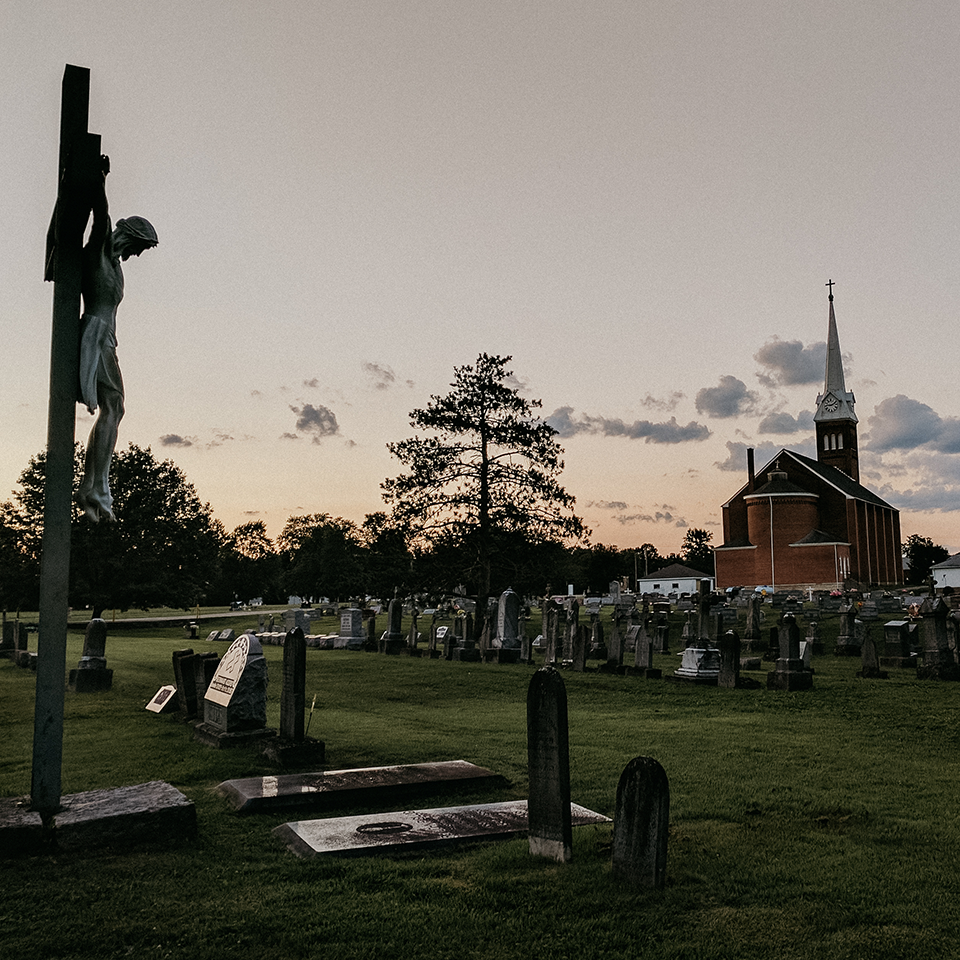The month of November is dedicated to praying for the souls in purgatory. It is a reminder of something we really should be doing throughout the year. But how often do we pray for the souls of the faithful departed? All of us need to face that question.
I faced it when I read a stark passage from Thomas à Kempis’ Imitation of Christ. I was struck by these lines: “Who will remember you when you are dead? Who will pray for you?” These questions weigh on me more and more with each passing year. I remember the embarrassment I felt a month after the passing of a loved one. I recognized that I wasn’t praying for him, let alone thinking about him. This realization made me think about all my other deceased loved ones and how infrequently I visit their graves. I tried to change that on my last trip to Chicago. While I was running errands around town, I passed by the cemetery where my grandpa is buried and felt compelled to go in. I turned the car around and made my way into the cemetery; luckily, I found his grave. I offered up a heart-felt prayer for his redemption, additionally asking for his support as I continue my earthly pilgrimage. But I noticed that the cemetery was rather empty of visitors. It was as if I had been the only one there for days. There were no flowers, no candles—no sign of prayer or remembrance of the deceased. The cemetery faced a busy city street, but it seemed as if no one came in.
Contrast this with other cultures that continue to have a strong relationship with the dead. Cemeteries are packed on All Souls’ Day in many Catholic countries. I could not believe the pictures my wife showed me of the crowds in the Polish catholic cemeteries on All Souls’ Day. But even these practices are being threatened, as the technological, ever-accelerating world and its attendant Epicureanism are taking control of these societies.
A good reminder of the need to pray for the dead, and the reality of purgatory, is the new film Purgatory by Michał Kondrat. Part dramatic narrative, part documentary, the film explores the conversion and mystical writings of Stefania Fulla Horak, who was visited by many saints who wanted her to write about the need to pray for the souls in purgatory. While the acting in the film is uninspired—worse than your typical Hallmark movie—the documentary part of the film is rather interesting. It explores the encounters Padre Pio and other saints had with the dead, and the Capuchin’s many struggles with demons who tried to deter him from praying for the souls in purgatory. Understanding purgatory as part of God’s mercy is repeatedly mentioned throughout the film; a good corrective to our tendency to view all forms of suffering, even purgative suffering, as punishment.
Twentieth-century Swiss theologian Hans Urs von Balthasar explains this well. He wrote, “Purgatory is perhaps the deepest but also the most blissful kind of suffering. The terrible torture of having to settle now all the things we have dreaded a whole life long. The doors we have frantically held shut are now torn open. But all the while this knowledge: now for the first time I will be able to do it—that ultimate thing in me, that total thing. Now I can feel my wings growing; now I am fully becoming myself.”
In praying for the dead, we, the Church, pray that the deceased become what God intends them to be in the New Adam, Jesus Christ. The prayer is not rooted in fear but in the great hope of fully partaking in the glory of God, a participation that brings about each soul’s fulfillment in the divine life at the wedding feast of the Lamb. The Catechism of the Catholic Church describes purgatory in this way: “All who die in God’s grace and friendship, but still imperfectly purified, are indeed assured of their eternal salvation; but after death they undergo purification, so as to achieve the holiness necessary to enter the joy of heaven” (CCC 1031). This is good news for all of us who despite our imperfections are rooted in the faithfulness to the Lord. But this is not a road we trod alone. In the bond of charity, we support each other, especially the dead, in prayer. The Catechism says that “the Church also commends almsgiving, indulgences, and works of penance undertaken on behalf of the dead” (CCC 1032), concluding with a passage from a homily by St. John Chrysostom: “Let us not hesitate to help those who have died and to offer our prayers for them.”
During this month of November, I encourage everyone to watch Purgatory, heed the call of St. John Chrysostom, and make an effort to pray for the dead, especially by visiting the graves of loved ones and even of strangers with tangible signs of your love and prayers.
